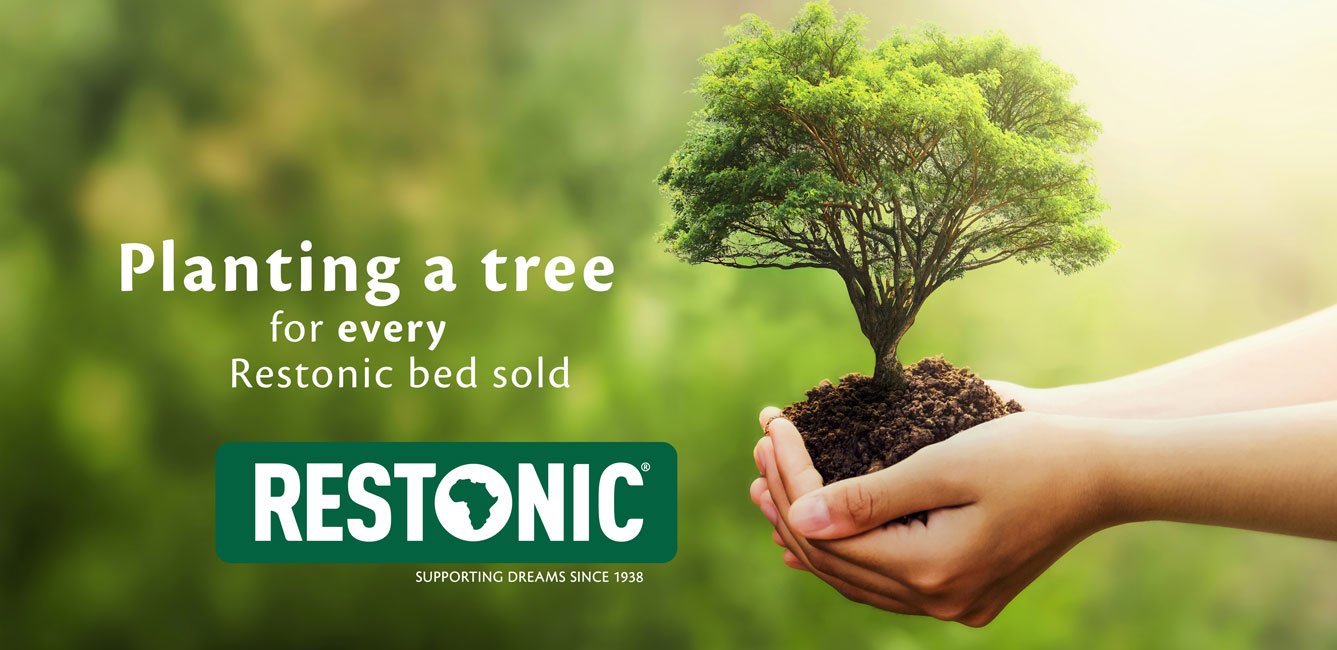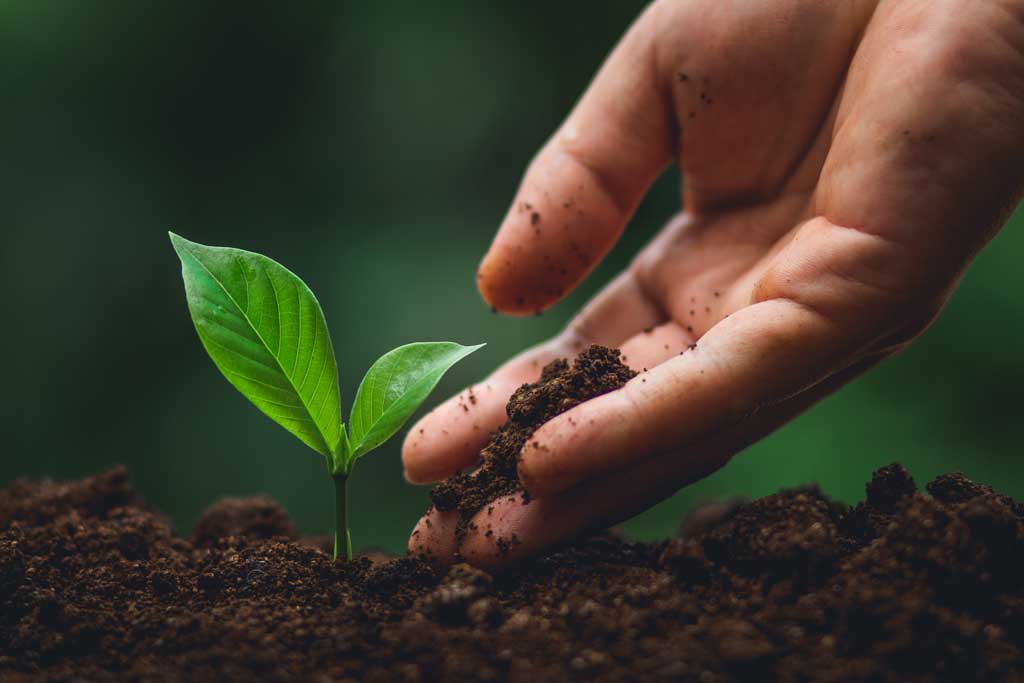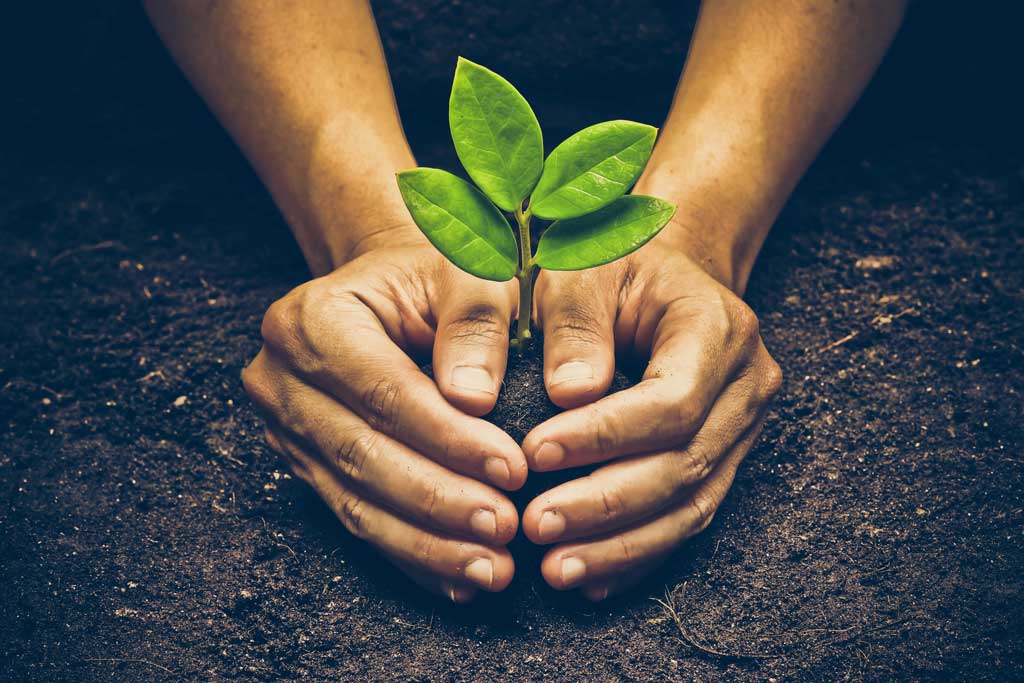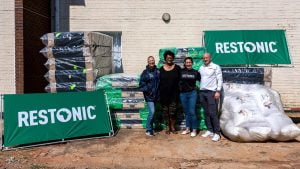
Restonic SA
Plant-a-Tree
Programme


When you buy a Restonic SA bed and register your product (which also activates your warranty), Restonic SA will plant a tree on your behalf to help protect our planet.
Once you have registered your purchase and allow us to plant a tree on your behalf, we will then send you a certificate to verify this Go-Green initiative and send you annual updates on your tree.
This Restonic SA initiative includes all Restonic, Restonic iDream and Restonic Greencoil products purchased as of 1 October 2021.
Why we’re
committed
to
planting trees

The problem
Deforestation is the word used to describe the mass loss of trees. Although forests currently cover about 30% of the world’s land area, around the world, deforestation is a pressing problem.
We need trees – they absorb carbon dioxide and other greenhouses gases from the air. When we lose trees, more greenhouse gases enter the atmosphere, which speeds up global warming and climate change.
Deforestation also leaves wildlife without homes, damages ecosystems, and changes weather patterns, causing flooding, erosion and desertification.
According to the World Bank, in the period between 1990 and 2016, the world lost 1.3 million square kilometres of forest.
Deforestation
1950

2000

2050

Deforestation happens for many reasons. More than half is caused by farming, grazing livestock, mining and drilling. Other causes include poor forestry practices, wildfires, burning by communities (for example, to use the wood or to make charcoal) and urbanisation.

The solution
To combat deforestation, we’re committed to helping with reforestation.
We have partnered with a specialist in this area, Eden Reforestation Projects, to make sure that our efforts are effective and sustainable.
Eden Reforestation Projects works to ensure that reforestation benefits the local communities where the trees are planted, and that the trees chosen are appropriate and that they’re well taken care of.
Why trees are important
- Trees produce oxygen, which humans need to breathe.
- Trees are the most efficient consumer of carbon dioxide on the planet.
- Every year, a single acre of trees can absorb six tonnes of carbon dioxide from the environment.
- Trees help to fight climate change.
- Trees help create healthy ecosystems for other plant and animal species.
- Trees help to regulate water retention.
How planting trees help
- A typical tree can absorb around 21 kilograms of carbon dioxide per year once mature
- Planting trees can provide nutrition and employment opportunities in vulnerable communities
- Trees provide shelter for animals and people

The bigger picture
The Restonic SA Plant-a-Tree programme is part of our greater commitment to the environment, our planet and to being a responsible corporate citizen.

Our business is built on zero-waste principles and we’re constantly working to reduce our environmental footprint. From recycling to optimising our logistics to reduce greenhouse gas emissions, we are committed to being as green as we can be. You can read more about this commitment here.
Restonic SA Plant-a-Tree FAQs
Trees are vital for many reasons.
- Trees produce oxygen, which humans need to breathe
- Trees are the most efficient consumer of carbon dioxide on the planet
- Every year, a single acre of trees can absorb six tonnes of carbon dioxide from the environment
- Trees help to fight climate change
- Trees help create healthy ecosystems for other plant and animal species
- Trees help to regulate water retention
Planting trees can help to reduce extreme poverty and restore healthy forests. We do this through partnering with Eden Reforestation Projects, which employs local people to plant millions of trees every year, benefiting communities around the world.
Planting trees is part of Restonic SA’s commitment to being good corporate citizens and a green-focused business.
We plant one tree per Restonic SA bed that is purchased (this includes Restonic idream and Greencoil beds) and registered on our website, which also activates your warranty. All you need to do is buy a Restonic SA branded bed, scan the QR code on the bed, fill in our online form and upload your proof of purchase. Or visit our website to register your product.
We will then verify your bed, plant a tree on your behalf through our partner, Eden Reforestation Projects, and send you a certificate confirming your tree has been planted, as well as annual updates on your tree.
Currently, we are supporting Eden Reforestation Projects in Kenya and in Mozambique. We are also working on plans to partner with a South African company to plant trees locally.
Kenya
In Kenya, Eden started working with the local community to replant and protect Kenya’s forest systems in 2019. Eden is working in two distinct regions within Kenya: The Great Rift Valley and the Northern Coast. In partnership with a local organisation, Eden is planting Afromontane species within the Kijabe Forest. The reforestation efforts in the Northern Coast focuses on planting mangrove and coastal forest species. Eden is now the largest, most efficient reforestation organisation throughout Kenya.
Eden partners with a local forest trust, the Kijabe Forest Trust, regional and national government institutions, and the surrounding agricultural and pastoral communities to restore this crucial forest. We are working to re-establish a sustainable water supply through protecting and replanting around springs and rivers, restoring habitat for wildlife, stabilising steep slopes prone to landslides, and securing livelihoods. Over the past few years, Eden has expanded its operations in Kenya to the Mau Region, the Meru Region, the Tana River Delta, and Nakuru county.
Mozambique
In Mozambique, 70% of the population lives in rural areas. Although Mozambique is historically home to vast mangrove systems and forests, these have been largely destroyed. With over 45% of the population living below the poverty line, the people of Mozambique rely on its natural resources and forests. Eden is working with local communities to restore, replant and protect these vital forest systems.
Eden’s work in Mozambique helps protect coastal communities from environmental disasters, improve fisheries, remove carbon from the atmosphere, and increase biodiversity while also addressing the urgent need for poverty alleviation and women’s empowerment.
Our partner, Eden Reforestation Projects, plants indigenous trees (no invasive species) and a percentage of trees for agroforestry (forest farming).
They never plant or introduce any invasive species. The trees planted for agroforestry are chosen for sustainable community use. This prevents the community from going into newly restored forests and provides greater community benefit and involvement in the project.
The short answer is no.
Most of the trees we plant through Eden Reforestation Project’s sites are owned by the local communities who actively participate in the restoration of their regional forest during their employment period with Eden (so there is a double benefit of reforestation and creating employment opportunities). Sometimes, when agroforestry trees are planted at small-scale farmer sites, the land is owned by the local farmer. In these cases, the small-scale farmer owns the trees, along with the proceeds from the trees (thus benefiting small businesses and the local economy).
At the moment, we don’t have the ability for you to choose where your tree is planted. We’ve trusted Eden Reforestation Projects to choose the locations that can have the biggest community and reforestation impact. They are the experts in this field, having planted 650 million trees across eight countries, with approximately 20 million trees added each month.
Currently, Restonic SA supports Eden projects in Mozambique and Kenya.
Trees planted through the Restonic SA Plant-a-Tree programme are situated in Eden Reforestation Projects sites, where every effort is made to ensure the forests planted become permanent and sustainable.
People from the local communities are hired to plant the trees. In this way, we help to alleviate extreme poverty within the community. The community members have an economic incentive to ensure the wellbeing of the restoration project. They also have a sense of ownership over the trees and restored forest and they protect it with great care.
Where agroforestry species are planted (fruit, fodder, and construction species designed to provide food security and benefit legitimate human needs), these trees become a source of sustainable income over time.
Eden Reforestation Projects works carefully with all levels of government to secure written agreements designating the restoration sites as protected in perpetuity.
To protect trees from illegal harvesting, everything possible is done to supply local communities with alternative fuel sources (fuel-efficient dry wood stoves and solar parabolic stoves), which reduces and/or eliminates dependence on charcoal. Forest guards are also hired as part of the labour force.





